Once Upon a Time in the West: Inga Thompson's South American adventure
A sod jail, an angry promoter and getting handcuffed to a van, life for pioneering women racers was often a wild ride
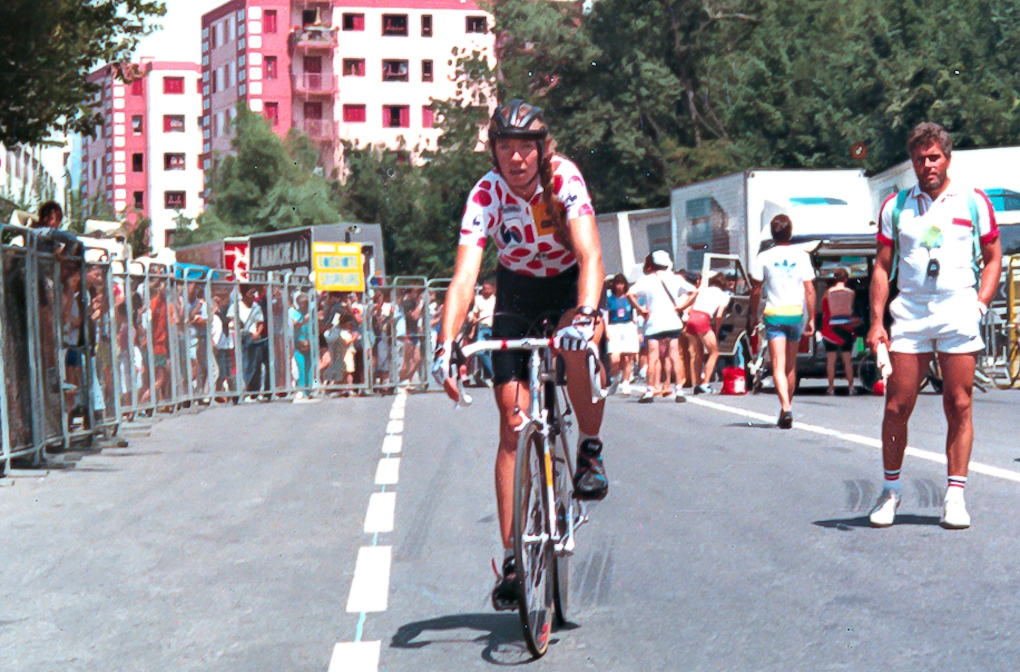
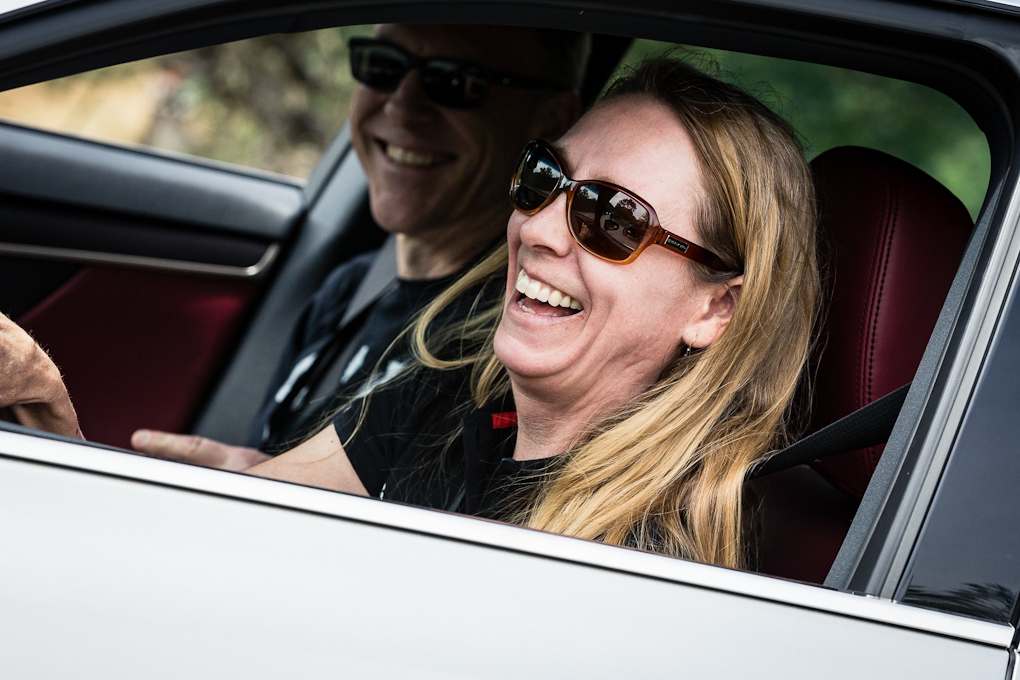
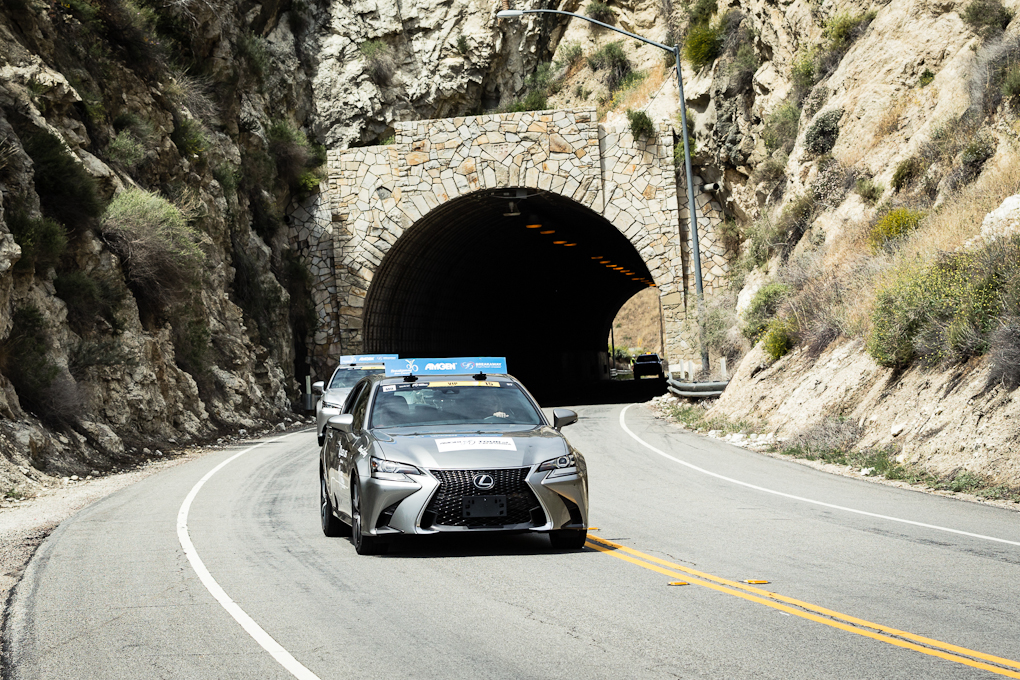
Although there remains a lot of work to be done in providing women's racing with the same opportunities as the men, the sport has come a long way in equality from its early days, when an openly chauvinistic attitude toward female athletes saw women riders treated as a novelty or shunned from participation completely. While that attitude still exists in some quarters of the sport, momentum is building among the voices trying to quash it.
For women racing in the 1980s and early 1990s, however, competing in the boys' club could be like stepping into a '70s spaghetti western, where rules were fluid, deals were never certain, alliances changed quickly, and friends of the moment could be hard to find when things got rough.
That's the world that American and three-time Olympian Inga Thompson found herself in when she ventured to Argentina in 1991 with a teammate, their sketchy Russian director, and too much competitiveness for a local race promoter's comfort.
Same as it ever was
To say the structure of cycling and race schedules was a tad bit looser in the early 1990s would be an understatement of epic proportions; opportunities for women could be almost non-existent at times on the calendar. So Thompson and teammate Marion Clignet travelled far afield looking for competition that would allow them to keep their fitness high and hone their pack skills.
That's how they found themselves in South America in the winter of 1991, racing with large fields in men's races that challenged their racing abilities and nerve – and not just on the bike. Everyday was an adventure, and sometimes the racing was interesting, too.
Thompson and Clignet got a taste of how fast things could go sideways during one trip while travelling through Argentina from one race to another. A simple border crossing quickly turned complicated when the pair were stopped by a group of border patrol officers who promptly put them in a sod jail and demanded ransom.
"We had been racing with the men the whole time and they wanted us to go to a women's race, in which there was going to be like 20 women, and we didn't want to do it," Thompson recalled during an interview with Cyclingnews earlier this year.
The latest race content, interviews, features, reviews and expert buying guides, direct to your inbox!
"At this time it was just Marion Clignet and myself. We had a coach who was Russian and spoke no English, and Marion speaks French and a little bit of Spanish and a little bit of Russian. And I don't speak any… I don't even speak English well. So they're like, 'Well, you can't race this next stage race with the men unless you go do this women's race. So we go to this women's race, and Marion and I, we win it," Thompson said.
So far, so good. But things went haywire when Thompson and Clignet made the return trip.
"We're on the way back and hit one of these border patrols," Thompson said. "They wouldn't let us through unless we gave them many hundreds of dollars in American money, and all we had was [local currency], and so they threw us in a sod jail – a sod jail! And I'm like, 'Oh my God, we're in the middle of nowhere in a sod jail. This is where people disappear'."
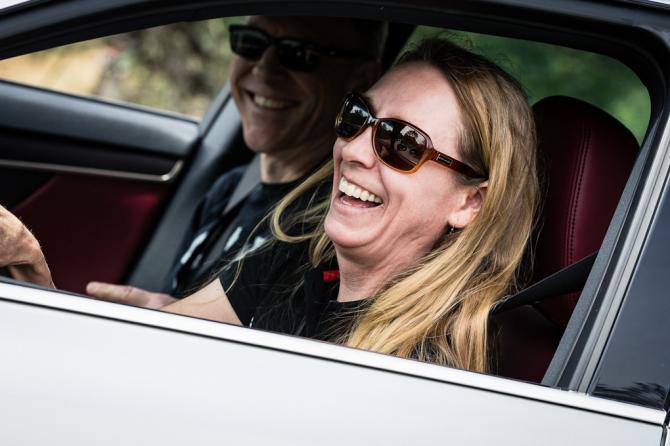
I
Thompson and Clignet did not become two of the missing, however, as they were able to persuade their captors that holding two prominent American bike racers hostage may not have been the winning strategy they first imagined it to be.
"We were showing them articles, telling them we've been at this race, we're supposed to go this next race," Thompson said. "I think they realised that, 'Yeah, we just can't hold them indefinitely until we get our money'. So they let us out, and then we got to the race."
That's when things got really weird.
Thompson and Clignet made it to the next men's race and, much to the surprise of the local organisers, officials and some of the other riders, the women were able to more than hold their own in the South American men's peloton.
"The first day there were several breaks, and I got in them," Thompson said. "I think at that point they realised, not that I was a threat – I wasn't going to win it – but it was like they were originally thinking we'd be off the back instantaneously, but instead we were making the breaks and getting sucked back in."
The next stage went totally off the rails when organisers approached Thompson at the start line and told her she would not be allowed to race that day.
"We're like, 'No, we have a deal. You said if I went to this women's race you would allow me to race with the men’. And the team director, he just disappears. We're like, 'You brokered this deal'. He disappears, and I'm arguing that yes, I do get to race."
At that point, the local race director grabbed onto Thompson's bike and wouldn't let go.
"I told them I had a deal and went all the way to this other race – I'm racing," she said. "They're still holding onto my bike, and the peloton takes off. They let go of my bike after the peloton had gone about 100 yards, so I took off and got in the field."
The local police got involved next, driving up next to Thompson to try and remove her from the peloton.
"The men who were racing were just great," Thompson said. "They kind of formed this protective barrier around me, and the gendarmes couldn't haul me out. I ended up finishing that day. I didn't make any breaks or anything like that, but I finished that day."
But, of course, that wasn't the end of it. The local promoter was determined that Thompson would not compete with the men again.
"The next day I'm on the start line and they just walked up with handcuffs, and they slapped one on one wrist and they slapped the other to the van door and just parked me there," she said. "They didn't say anything. They just walked off, and I'm looking for our team director and can't find him. And then after the race is gone and I'm still locked to the car, I see him pop out of the van, like, 'You've got to be kidding me. Thanks a lot'."
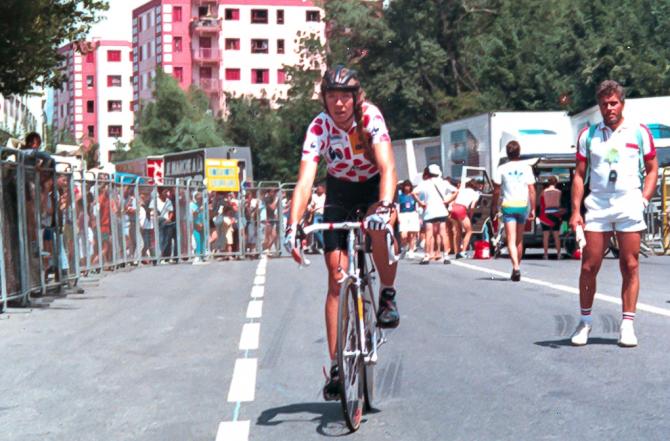
Thompson wears the polka dot jersey in Gap at the 1986 Tour de France Donne (Sirotti)
And you may find yourself...
Sitting there astride her bike in Argentina, handcuffed to a van near the start line as the race rode away, Thompson could have only been wondering how she got there from life as a respectable collegiate runner at Cal Poly San Luis Obispo, where she was fourth in cross country nationals as a freshman after compiling an impressive list of high school running accomplishments in Reno, Nevada.
"This was not how I saw myself living out my life, you know, in a sod jail," she said. "I just remember laughing with Marion and saying, 'So I guess we start digging now?'"
Thompson and Clignet didn't have to dig their way out. But they did walk away with a cycling adventure that will likely not be matched anytime soon by most modern-day cyclists.
Thompson took up cycling in 1984 when she learned there was going to be a women's Tour de France, legend has it, and within months found herself on the US team competing at the 1984 Olympics in Los Angeles. Thompson finished 21st in the historic first-ever Olympic women's road race won by Connie Carpenter, and she went on to compete around the globe until 1993, taking part in two more Olympic Games.
Thompson was the top American in eighth place at the 1988 Seoul games won by Dutchwoman Monique Knol, and she was 26th in the 1992 Barcelona race won by Australia's Kathryn Watt ahead of France's Jeannie Longo-Ciprelli and Knol. She was runner-up in the UCI Road World Championships Road Race in 1991 and was twice second in the team time trial in 1987 and 1990, when the race was contested by four-rider national teams.
Well known for the long braid that hung from beneath her helmet, Thompson also raced in the pioneering Tour de France Feminine, taking third during her first effort there 1986 on the strength of an individual time trial win and also taking the famed polka dot mountains jersey. She was third again at the Grande Boucle in 1989.
Riding for the iconic 7-Eleven team back in the States, Thompson was a four-time US road race champion between 1987 and 1993, and she won the individual time trial title twice, in 1989 and 1991. She also took the team time trial title three times.
In stage racing, Thompson's most notables wins came with the overall title at the Coors Classic in 1988 and at the Ore-Ida Women's Challenge in 1987 and 1990, still the longest-ever women's stage race at 17 days and 1,067 kilometres.
Thompson retired abruptly from the sport in 1993 after winning her fourth US road race title, saying later that she was forced out because of her strict anti-doping attitude at a time of increasing use and effectiveness of performance-enhancing drugs. Thompson was inducted into the US Cycling Hall of Fame in 2014.
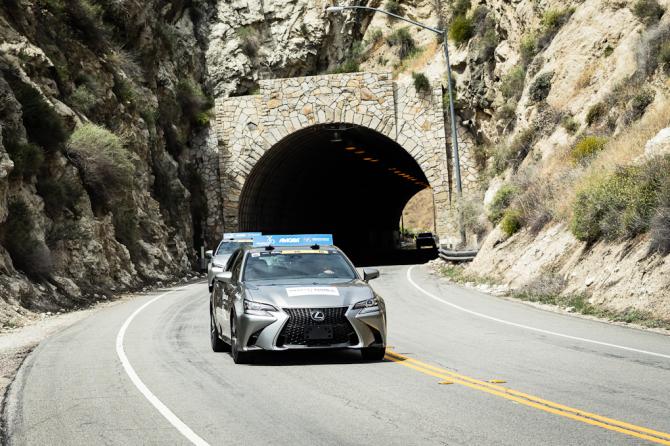
Driving a VIP car in California was Inga Thompson's latest return to the cycling scene (Oran Kelly/AEG)
Letting the days go by
Now 55, Thompson spends the majority of her time far away from cycling, enjoying life on her ranch outside the tiny eastern Oregon town of Halfway near the Wallowa Mountains. But she has been dabbling in cycling again, penning several articles in 2012, calling out the doping culture and pointing to a path forward. Thompson also volunteers at a nearby amateur race and created the Inga Thompson Foundation to help female riders who may fall outside of USA Cycling's development programs.
In May, Thompson spent a week in the Golden State driving a VIP car in the Amgen Tour of California caravan, following the days' breakaways over countless kilometres and down never-ending twisty descents, all while dodging commissaires, photo motos and the odd pothole or three – not to mention keeping her paying passengers safe, entertained and informed. She was back in the VIP car at the Larry H. Miller Tour of Utah earlier this month.
Cycling has changed a lot since the wild west days of the 1980s and 1990s, thanks in large part to riders like Thompson, who bore the brunt of the chauvinism that led to sod jails and handcuffs.
She recalls spending a solo year racing in France with the men because there was no sponsorship for her back in the States.
"That was an adventure," she said. "I mean getting spit on, getting pushed. They would drag stuff. I mean I went through the gauntlet with that, and then a bunch of guys loved having me in there.
"Thankfully, I just have a stubborn enough personality, or an I-don't-care personality, but it didn't bother me what they did," she said. "I mean I kind of found out I'm odd man out here, or the odd girl out. I had to run the gauntlet to prove that I was worthy of being there. So in that sense it didn't bother me. I'm sure they did that to any newbie. Years later, people would say, 'Yeah, whenever you were in the race, we raced a lot harder because you were there'."
In the long run, that baptism by fire made Thompson a tougher, stronger, better bike racer, even if that was never the intention of the men who were threatened by her presence.
"I was thinking, 'These guys really go hard.' I mean, that was my view," she said. "It was actually really cool, and it really helped me because in women's racing I was so strong I could just go anywhere and do anything and not really worry about tactics or positioning.
"But boy when I raced with the men I knew I had to be smart or I would get spat out the back so fast. So in that sense, I appreciated it. They made me a better racer, and they gave me a hard time, which I appreciate, too, because I felt like I earned my spot," she said.
"I mean, some of my favourite stories are when Alexi Grewal was screaming at me in the front of the field. I must have done something really bad to get him going. But I just thought, 'You know what, if I'm doing something that has him that pissed off, I must be doing something right'.
"That was my attitude: 'Hey, I'm in the club here; Alexi's screaming at me'."
Growing up in Missoula, Montana, Pat competed in his first bike race in 1985 at Flathead Lake. He studied English and journalism at the University of Oregon and has covered North American cycling extensively since 2009, as well as racing and teams in Europe and South America. Pat currently lives in the US outside of Portland, Oregon, with his imaginary dog Rusty.